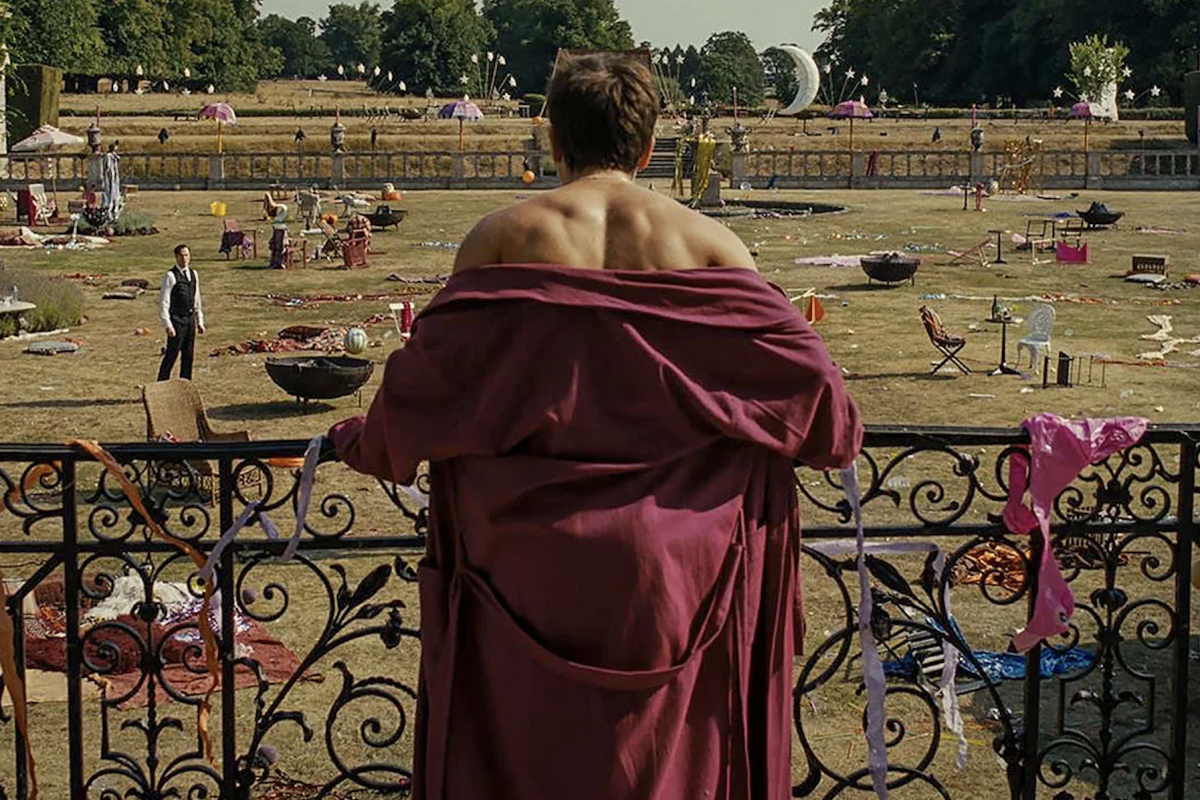In one scene, amid the flashing blue lights of a club and beside sweaty swirling bodies, a man twirls in a red cowboy hat, a boyish grin sprawled on his face. In another, a group lounges under the sun in the lush green field of the countryside estate. In another, a man wanders through the dense turns of a maze, guided by the light of stars under the night’s navy cover.
“Saltburn,” a thriller movie released in theaters Nov. 17 and on Amazon Prime Video Dec. 22, is made up of the unexpected. It’s rules and taboo. It’s vampires and angels. It’s novelty and infatuation.
Directed by Academy Award winner Emerald Fennell, “Saltburn” cleverly shares a spin on the story of the insider versus the outsider, as a character enters a wealthy hierarchical society and intermingles with dark obsession. While, at times, “Saltburn” becomes deeply uncomfortable and squirm-worthy, the movie’s slow start pays off in the end with a jaw-dropping twist, leaving the audience stunned, consumed, and a little sickened by the bold film.
The movie begins before the Gothic buildings of Oxford University, where student Oliver Quick, played exquisitely by Barry Keoghan, is drawn into the world of a peer who seems larger than life — Felix Catton, a young British aristocrat. Oliver appears unfamiliar with the parties, filled with exorbitant wealth, and the unspoken rules, the quick details that communicate class, that make up Felix’s life. Once Oliver is distraught after learning disturbing news, Felix invites him to stay with him at his family’s estate in Saltburn, England. From there, he meets the rest of the Catton family and chaos — verbal, physical and emotional — ensues.
The movie flourishes off of its visual charm — from the glittery eyeshadow to the 2000s-inspired clothes to the bold colors of the family’s manion. Shot on 35mm film, the movie has a stunning vintage quality, almost transcending time. “Saltburn” also thrives off the more subtle tensions, a main one being between Felix’s family and Oliver, for the Cattons speak a native language of traditions and rules that Oliver can barely begin to acquaint himself with. This language barrier is often uncomfortable to watch, but the movie becomes enthralling when Oliver begins to speak this new language.
Since its release, the movie has generated enormous buzz through media coverage and social media. Its soundtrack has received particular attention, especially the song “Murder on the Dance Floor,” which is featured in the movie’s shocking last sequence. The song was released in 2001 but, due to Saltburn, has become a top 10 hit.
Other aspects of the movie, however, do not comply with that same subtlety. The movie’s other scenes have generated ample conversation on social media platforms for its vulgarity. The scenes are not for the faint of heart, but despite their shock factor, they ultimately drive the plot forward.
Though the film is at times deeply uncomfortable, every scene appears to be done with intention. An unexpected mix of the earthy aristocratic, the supernatural and the ethereal, “Saltburn” demolishes expectations in a haze of flashing lights and glitter.





















































